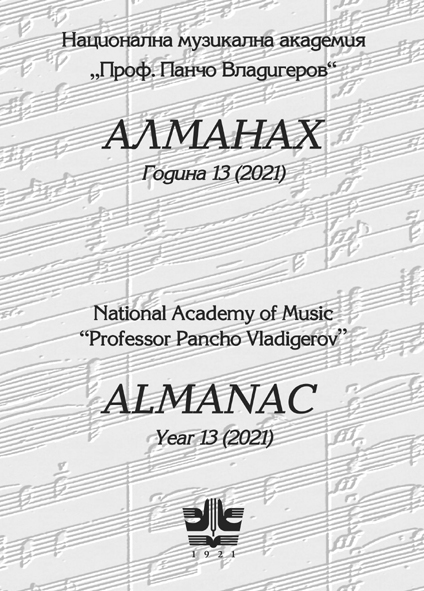Музиката в текстовете на Платон – образователни проекции
Music in Plato’s Writings – Educational Perspectives
Author(s): Emil DevedzhievSubject(s): Fine Arts / Performing Arts, Music
Published by: Издателство НМА „Проф. Панчо Владигеров”
Keywords: music; education; nomos; ethos; tropos; polis
Summary/Abstract: This article is focused on Plato’s conception of music and the role of music in education, mainly in reference to two of his later works, namely Republic and Laws. In Republic Plato refers to the views of Damon concerning the upbringing power of music. Music is capable of tuning the temper of, or attuning, the person and the community. Therefore, music is suitable for the good upbringing, beginning at the early childhood. Even before the reasoning ability of a child is developed, music can teach and nurture it to differentiate right from wrong, beautiful from ugly. In Republic music is (only) a tool (albeit a very powerful one) for the upbringing of a person (whether a child, a juvenile, or an adult), that should recede once the person learns to contemplate the intelligible world and ideas, and thus – the person could break away (mentally) from the sensible perceptible world. But in his last dialogue– Laws, Plato reassesses the project laid down in Republic in view of the necessity to substantiate not only the best possible city, but more so – the best attainable city, the best city in practice. Through that reassessment, music is being “immensely elevated” from its former tool-like educational status only, to a- or even the foundation of education and joint living in the city.
Journal: Алманах - Национална музикална академия „Проф. Панчо Владигеров“
- Issue Year: 2021
- Issue No: 13
- Page Range: 239-252
- Page Count: 14
- Language: Bulgarian

